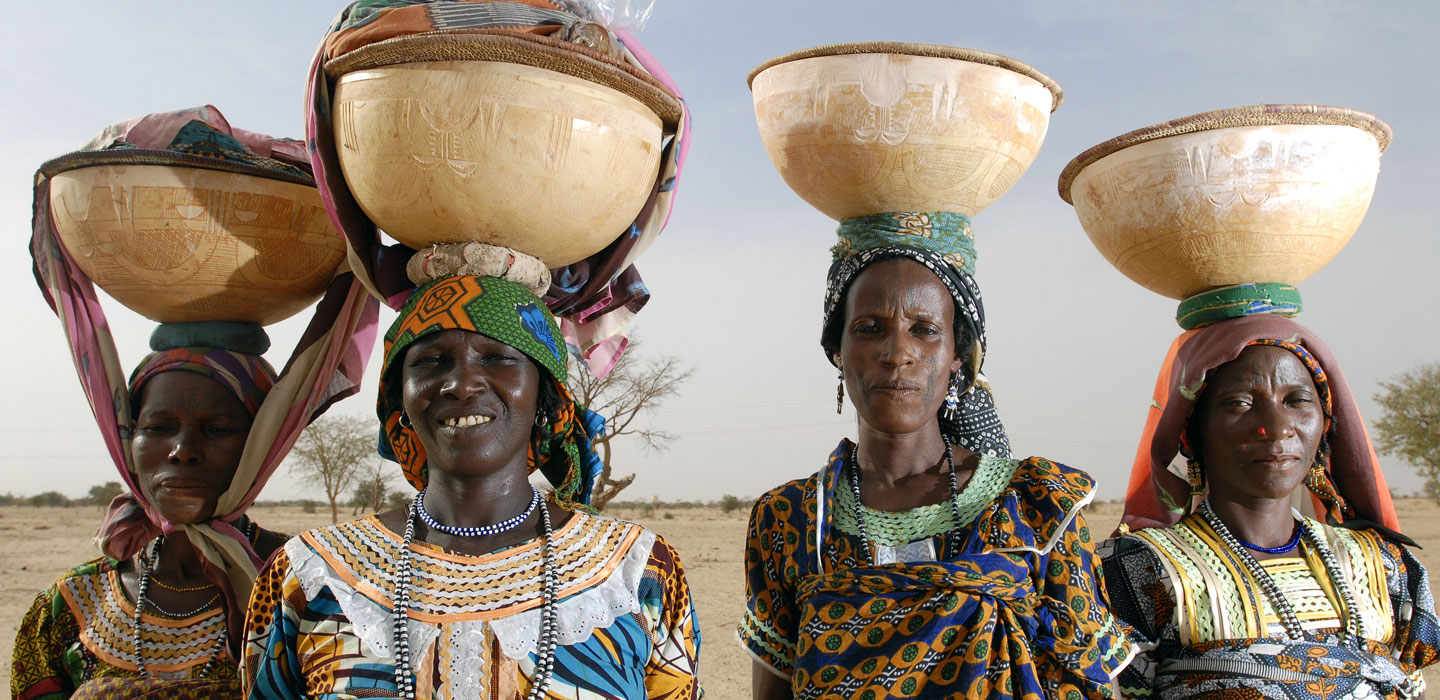Tools and guidelines
Tools and guidelines

Tools and guidelines
Menu Display
Search Results Filters
Search Results
Philippines: Country Technical Note on Indigenous Peoples’ Issues
Various sources estimate the population of indigenous peoples in the Philippines at 12-15% of the current national population of 108 million, or a total of about 16-17 million.
Indonesia: Country Technical Note on Indigenous Peoples’ Issues
Indonesia is comprised of 13.000 islands with a total area of 7 million km2. It has a total population of 273 million in more than 1.000 various ethnic and sub-ethnic groups with their own cultures and traditions.
Guidelines for Inclusive Agricultural Value Chains Development in Africa
These guidelines assess previous Agricultural Value Chains (AVC) development efforts across Africa, propose policies and strategies for developing AVC pathways, and identify the policy and institutional factors needed for successful implementation.
Cambodia: Country Technical Note on Indigenous Peoples’ Issues
Indigenous Peoples of Cambodia represent 24 different groups, who reside mainly in the upland forests, plains, and mountains of the northern and north-eastern provinces.
Viet Nam: Country Technical Note on Indigenous Peoples’ Issues
This report aims to provide the most recent information on the issue of Ethnic Minorities in Viet Nam in terms of the general situation, poverty reduction, impact of COVID-19, Government policies and programs as well as such as NGOs, ODA and IFAD in Viet Nam.
How to do Note: Designing for and monitoring resilience for vulnerable rural households
The RDMT aims at providing a framework for building the resilience of rural households and a step-by-step guide to designing for and monitoring the performance of resilience-building interventions during project implementation.
Myanmar: Country Technical Note on Indigenous Peoples’ Issues
Myanmar is one of the most ethnically and culturally diverse countries in the Asian region, and ethnicity is a complex, contested, and politically sensitive issue in the country where ethnic groups have long believed that successive governments of Myanmar manipulate ethnic groups for political purposes.
Bangladesh: Country Technical Note on Indigenous Peoples’ Issues
There are different and conflicting opinions, and until very recently, acute shortage of reliable data and statistics, regarding the population size of the different Indigenous Peoples in Bangladesh
Nepal: Country Technical Note on Indigenous Peoples’ Issues
Indigenous peoples of Nepal have been living in Nepal since time immemorial.
IFAD Strategy and Knowledge Department Learning Note #2
This Learning Note showcases the methodology used for assessing the impacts of IFAD's investments on the livelihoods and lives of its project participants.
Sustainable and resilient Indigenous Peoples’ Food Systems for improved nutrition
This toolbox provides guidelines on how to design and assess food biodiversity and dietary diversity projects with local communities, with the aim of improving the diets and nutrition of Indigenous Peoples.
Lao People’s Democratic Republic: Country Technical Note on Indigenous Peoples’ Issues
Lao People’s Democratic Republic (Lao PDR) is one of the countries with the largest number of different ethnic groups in the world. The history of these ethnic groups extends beyond human memory.
India: Country Technical Note on Indigenous Peoples’ Issues
Internationally, the ‘Scheduled Tribes’ (STs) of India are generally referred to as ‘Indigenous Peoples (IPs)’. However, the Government of India emphatically rejects equating Scheduled Tribes (STs) with IPs even while abiding by the operational directives of bilateral and multilateral agencies with regard to IPs while operationalising projects with their financial aid.
How to do note: Integrating the Gender Action Learning System (GALS) in IFAD operations
This note provides practical guidance on how to roll out the Gender Action Learning System (GALS) for IFAD-funded projects.
Understanding market demand: How to use focus group discussions in the development of inclusive insurance
Understanding market demand is a critical step in the process of developing solutions to meet the risk management needs of rural poor people, particularly with regard to insurance.
Agricultural and climate risk insurance for smallholder value chains: Identifying common challenges and solutions
This brief identifies and describes the principal challenges, and outlines possible solutions that development programmes can support.
How to do note: Seeking, free, prior and informed consent in IFAD investment projects
This note offers practical guidance for IFAD staff, consultants and in-country partners for seeking FPIC in the design and implementation of IFAD-funded projects and programmes, in compliance with IFAD policies and procedures.
Making agricultural and climate risk insurance gender inclusive: How to improve access to insurance for rural women
IFAD’s technical assistance programme INSURED (Insurance for rural resilience and economic development) has been building knowledge about how to strengthen women producers’ access to climate risk insurance.
IFAD communications toolkit
Communications is key to help poor rural people build better lives. And this toolkit has been created to help us all get the job done.
Knowledge Management Resource Centre
A resource for IFAD staff and consultants, project staff and partners who want to learn more about KM.